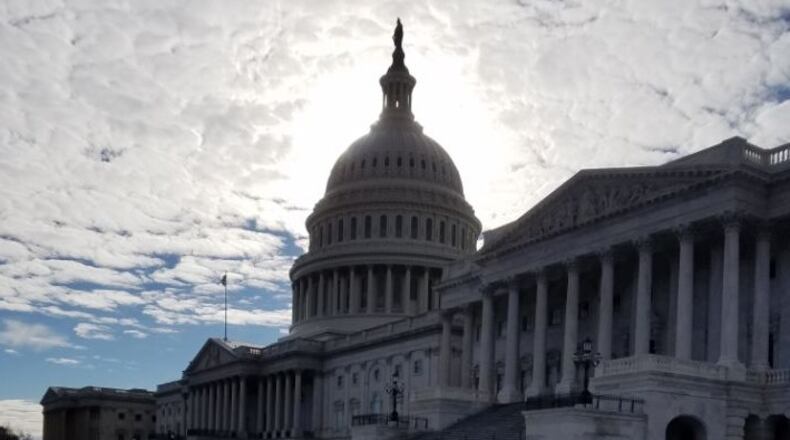"I argued against it at the time," Senate Democratic Leader Charles Schumer admitted in a recent interview with CNN's Dana Bash. "I said for both Supreme Court and Cabinet, it should be sixty."
"I wish it hadn't happened," Schumer added with a frustrated look on his face.
The issue has been mentioned often in the hallways of the Capitol in recent days, as Democrats rail against Trump nominees, but have little chance to do anything about it, as Republicans hold a 52-48 advantage in the Senate.
"Do you regret that Harry Reid went nuclear with the filibuster?" a reporter asked Sen. Dick Durbin (D-IL) last week.
"At the time, he had no choice," Durbin said.
Durbin left our small group of reporters without really directly answering that question, though other Democrats have openly acknowledged that it now feels like a mistake.
"The filibuster no longer acts as an emergency brake," Sen. Chris Coons (D-DE) admitted to CNN after the November elections.
"I do regret that," Coons added.
Democrats can still drag their feet and slow things down - it is the Senate after all - but if Republicans stick together, the Trump Cabinet should be approved.
If Republicans had to deal with a 60 vote requirement on Cabinet nominations, it certainly might have changed who was picked by Mr. Trump.
But the rules did change - and Republicans stand to benefit in 2017.
And Trump's supporters are very pleased.
For now, the filibuster remains on Supreme Court nominations; that seems likely to be a flash point later on this year.
There are three days of confirmation hearings scheduled for this week, though a number of votes on the Senate floor about the budget could get in the way of some of these hearings:
TUESDAY JANUARY 10
+ 9:30 am Sen. Jeff Sessions (Attorney General) - Senate Judiciary
+ 3:30 pm John Kelley (Homeland Security) - Homeland Security & Government Affairs
WEDNESDAY JANUARY 11
+ 9:15 am Rex Tillerson (Secretary of State) - Foreign Relations
+10:15 am Elaine Chao (Transportation) - Senate Commerce
+ A hearing scheduled on Wednesday for Education Secretary nominee Betsy DeVos was postponed until next week.
THURSDAY JANUARY 12
+ 9:30 am James Mattis (Defense) - Senate Armed Services
+10:00 am Wilbur Ross (Commerce) - Senate Commerce
+10:00 am Michael Pompeo (CIA) - Senate Intelligence
+10:30 am Ben Carsonn (HUD) - Senate Banking
About the Author
